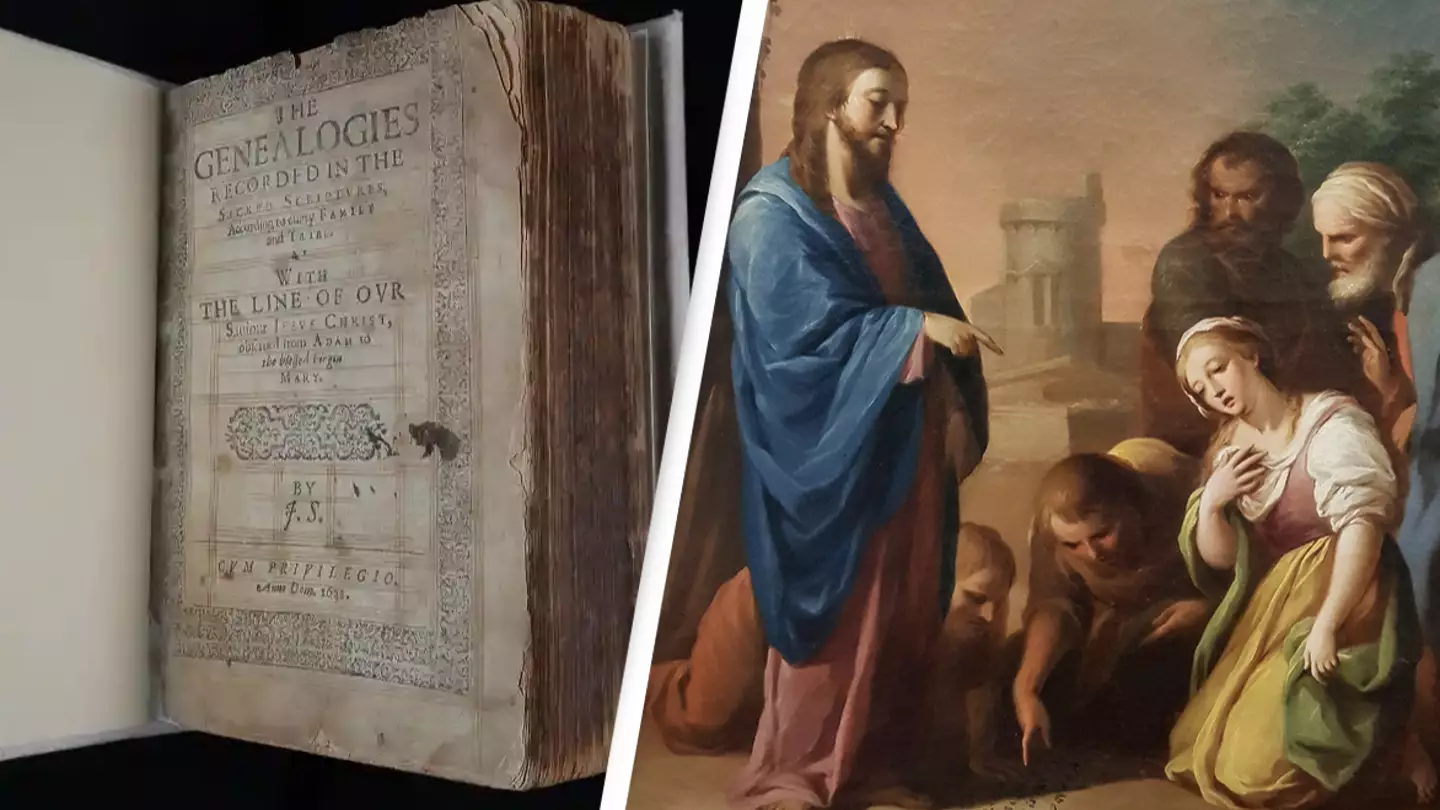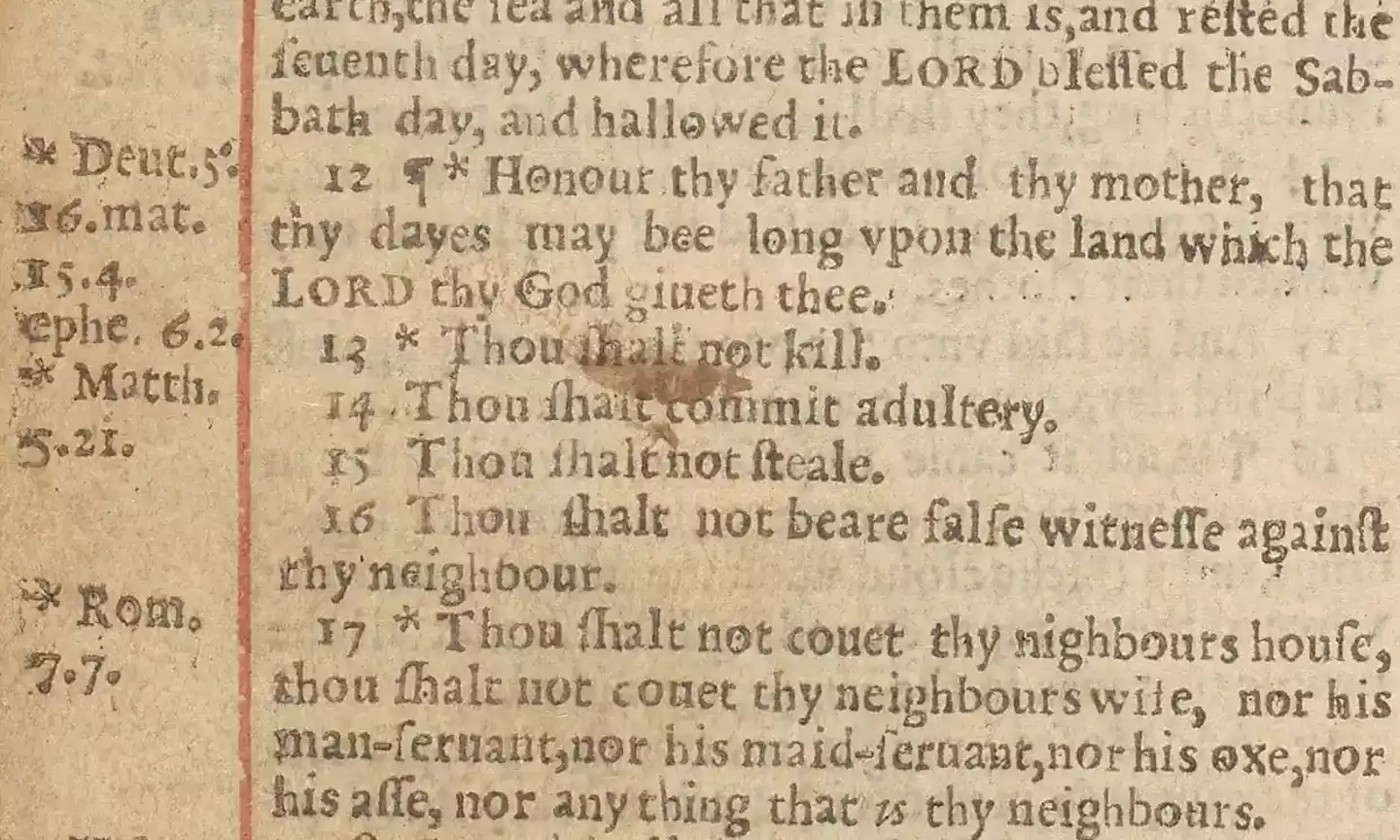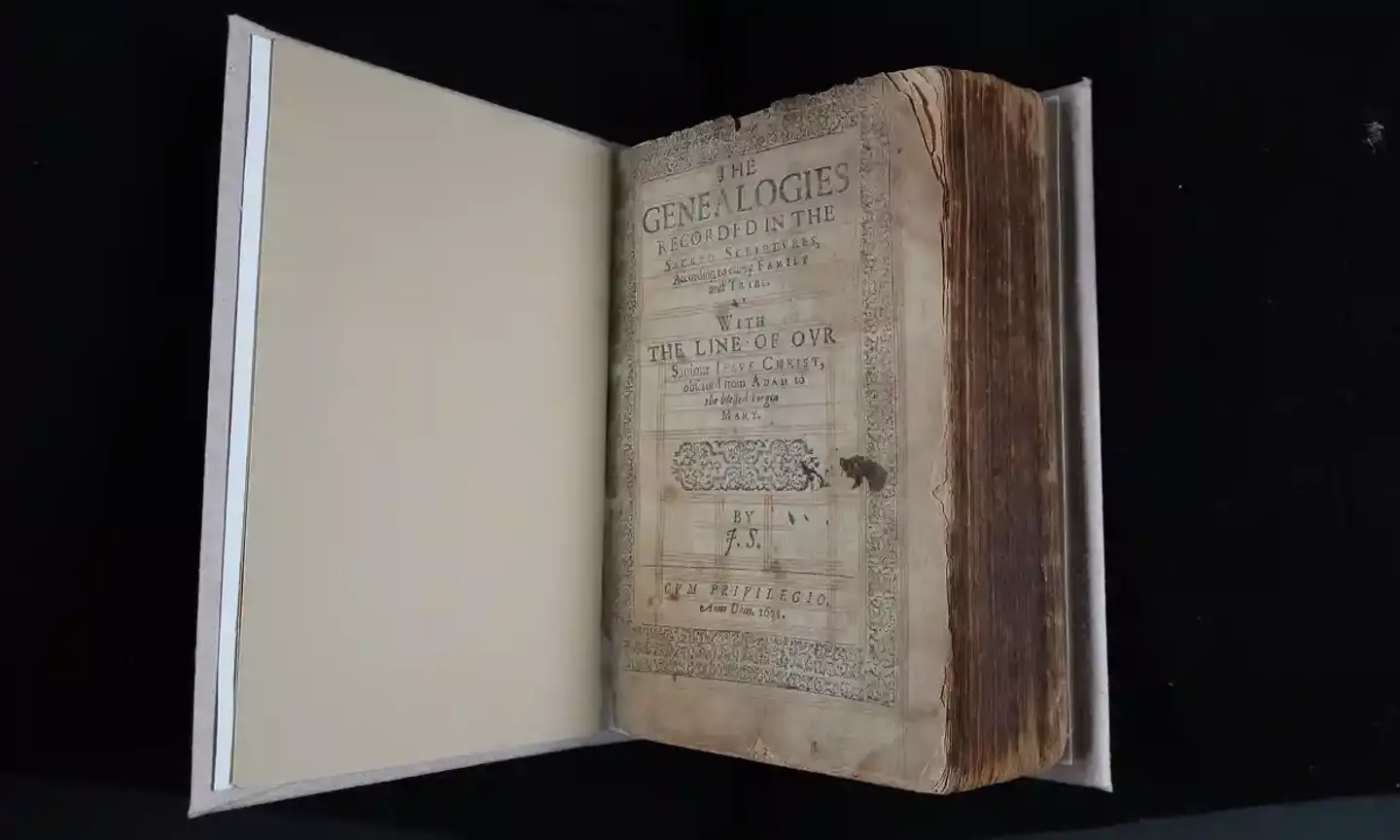
A rare bible that encourages adultery has been discovered in New Zealand.
In the first copy of the 1631 bible, the so-called seventh commandment reads 'though shalt commit adultery'.
The error of 'not' being included in the sentence was discovered one year after it was printed.
Dubbed the 'wicked' bible, printers Robert Barker and Martin Lucas were summoned to the court by King Charles I for the seriousness of their error.
Advert
The two printers were initially fined £300, although the fee was eventually removed and most of the books destroyed; only around 20 copies remained in circulation after most of the other texts were destroyed. Still to this day, we don't know how or why the error was made.

The University of Canterbury in Christchurch was first informed of its existence in 2018, yet opted to keep the discovery on the down-low in order to allocate a sufficient amount of time for researchers to analyse it.
Chris Jones, an associate professor in medieval studies at the university and fellow of the Society of Antiquaries in London, told The Guardian: "It’s a mystery, it’s fascinating and it has made its way halfway around the world."
It turns out that a former student made Jones aware of the book's existence after it was revealed to him two years earlier at a deceased estate sale. The student informed Jones that she believed it was a 'wicked' bible.
Jones was 'very disbelieving because these are not common items'.
He added: "They are not things that you just walk into an office having found one in a garage in Christchurch.
"But I looked at it and I thought, wow, this is exactly what my former student thinks it is – it’s a Wicked Bible. I was blown away by it."
The associate professor said there are still copies that remain in the US, Canada, UK and Ireland. Jones went on to say: "The Australians claim they have one, but they don’t.
"Having one come to me in Christchurch is just remarkable."

The bible was in pretty poor condition when it was found and had to be restored by a professional.
Book and Paper Conservator Sarah Askey was responsible for preserving the ancient piece of literature and said it took a lot of hard work getting it up to scratch.
“It was an awkward little thing to work around… and there was a lot of problem solving, but that was quite satisfying to do,” Askey said.
The book has been now fully digitised and will become free to the public via a website in the coming months.
If you have a story you want to tell, send it to UNILAD via [email protected]
Topics: World News